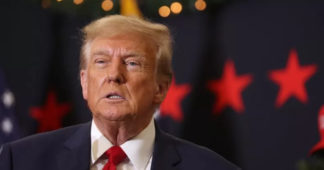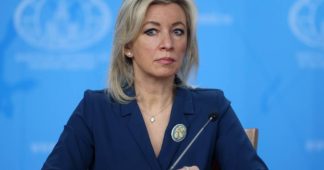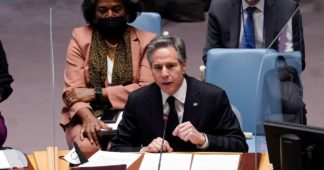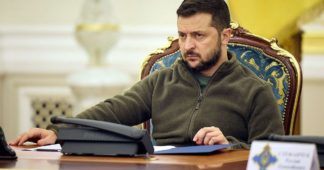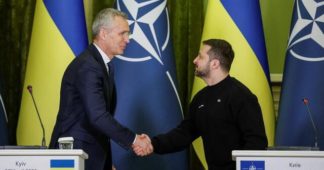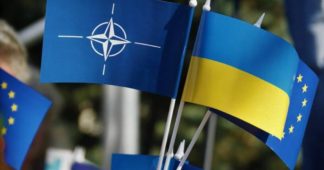Foreign-policy advisers close to the president-elect put forth different versions of a plan to effectively freeze the front line
By Alexander Ward
Donald Trump’s promise to end the war in Ukraine by Inauguration Day now puts him in a position of having to choose between competing proposals from advisers united by a common thread—a sharp break from President Biden’s “as long as it takes” approach to arming Kyiv.
Throughout his campaign for the White House, Trump bashed Biden’s handling of Ukraine, warning that it made World War III more likely and that Kyiv fleeced the U.S. by obtaining weapons worth billions of dollars free of charge. He has said he could resolve the conflict quickly, bringing both sides to the negotiating table, but hasn’t revealed how he would do so.
“I can’t give you those plans because if I give you those plans, I’m not going to be able to use them,” he said during the campaign.
In fact, Trump hasn’t approved a specific peace plan, allies said, including how he would persuade Russian President Vladimir Putin and Ukrainian President Volodymyr Zelensky to sit at the same table and negotiate. While advisers have offered ideas, only the president-elect, in consultation with key aides, will decide how to handle the sensitive and high-stakes diplomacy, they said.
“Anyone—no matter how senior in Trump’s circle—who claims to have a different view or more detailed window into his plans on Ukraine simply doesn’t know what he or she is talking about or doesn’t understand that he makes his own calls on national-security issues, many times in the moment, particularly on an issue as central as this,” a former Trump National Security Council aide said.
Like in Trump’s first term, different factions are set to compete to influence the Republican’s foreign policy. More traditionally minded allies such as Mike Pompeo, the former secretary of state now in contention to lead the Pentagon, are likely to push for a settlement that doesn’t appear to give a major win to Moscow. Other advisers, particularly Richard Grenell, a top candidate to lead the State Department or serve as national-security adviser, could give priority to Trump’s desire to end the war as soon as possible, even if it means forcing Kyiv into significant concessions.
The proposals all break from Biden’s approach of letting Kyiv dictate when peace talks should begin. Instead, they uniformly recommend freezing the war in place—cementing Russia’s seizure of roughly 20% of Ukraine—and forcing Ukraine to temporarily suspend its quest to join the North Atlantic Treaty Organization.
Continue reading at archive.is
We remind our readers that publication of articles on our site does not mean that we agree with what is written. Our policy is to publish anything which we consider of interest, so as to assist our readers in forming their opinions. Sometimes we even publish articles with which we totally disagree, since we believe it is important for our readers to be informed on as wide a spectrum of views as possible.
